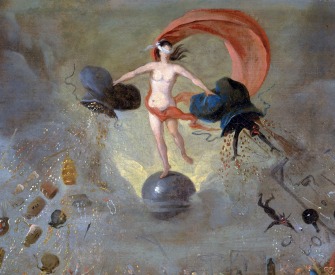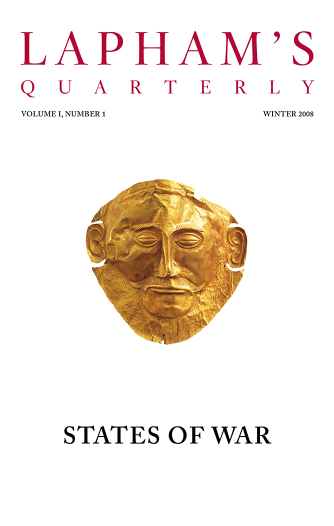Our topic now will be metals and the actual resources employed to pay for commodities—resources diligently sought for in the bowels of the earth in a variety of ways. For in some places the earth is dug into for riches, when life demands gold, silver, silver-gold, and copper, and in other places for luxury, when gems and colors for tinting walls and beams are demanded, and in other places for rash valor, when the demand is for iron, which amid warfare and slaughter is even more prized than gold.
We trace out all the fibers of the earth and live above the hollows we have made in her, marveling that occasionally she gapes open or begins to tremble—as if indeed it were not possible that this may be an expression of the indignation of our holy parent. We penetrate her inner parts and seek for riches in the abode of the spirits of the departed, as though the part where we tread on her were not sufficiently bounteous and fertile. And amid all this, the smallest object of our searching is for the sake of remedies for illness, for with what fraction of mankind is medicine the object of this delving? Although medicines also earth bestows on us on her surface, as she bestows corn, bountiful and generous as she is in all things for our benefit. The things she has concealed and hidden underground, those that do not quickly come to birth, are the things that destroy us and drive us to the depths below, so that suddenly the mind soars aloft into the void and ponders what finally will be the end of draining her dry in all the ages, what will be the point to which avarice will penetrate. How innocent, how blissful, nay, even how luxurious life might be if it coveted nothing from any source but the surface of the earth and, to speak briefly, nothing but what lies ready to her hand!
Gold is dug out of the earth and in proximity to it gold solder, which still retains in Greek a name derived from gold, so as to make it appear more precious. It was not enough to have discovered one bane to plague life, without setting value even on the corrupt humors of gold! Avarice was seeking for silver but counted it a gain to have discovered cinnabar by the way, and devised a use to make of red earth. Alas, for the prodigality of our inventiveness. In how many ways have we raised the prices of objects. The art of painting has come in addition, and we have made gold and silver dearer by means of engraving. Man has learned to challenge nature in competition. The enticements of the vices have augmented even art: it has pleased us to engrave scenes of license on our goblets, and to drink through the midst of obscenities. Afterward these were flung aside and began to be held of no account, when there was an excess of gold and silver. Out of the same earth, we dug supplies of fluorspar and crystal, things that their mere fragility rendered costly. It came to be deemed the proof of wealth, the true glory of luxury, to possess something that might be absolutely destroyed in a moment. Nor was this enough: we drink out of a crowd of precious stones and set our cups with emeralds; we take delight in holding India for the purpose of tippling, and gold is now a mere accessory.
And would that it could be entirely banished from life, reviled and abused as it is by all the worthiest people, and only discovered for the ruin of human life—how far happier was the period when goods themselves were interchanged by barter. That, in my view, was the way in which trade was discovered, to procure the necessities of life.
From Natural History. A lifelong bachelor who died while investigating the eruption of Vesuvius in 79, Pliny wrote now-lost books on grammar and history in addition to this encyclopedia, which classicist Trevor Murphy calls “a cultural artifact of the Roman Empire just as much as the Encyclopaedia Britannica was an artifact of the British Empire,” a tool that “converted the diversity of the world into an ordered text, an object, incorporating what had once belonged to others into the symbolic and economic systems of their conquerors.”
Back to Issue



